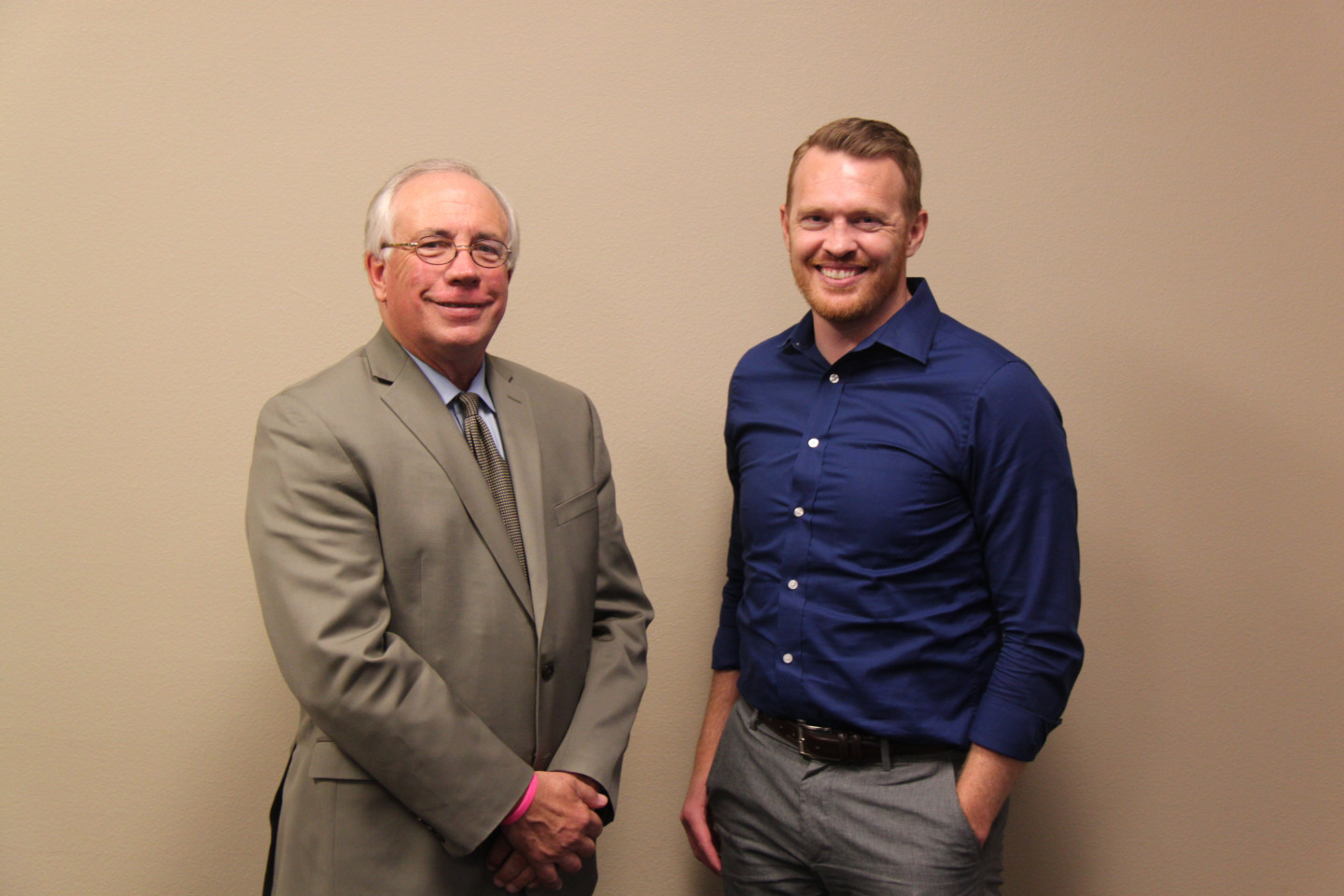Welcome to today's ClearCast! A fun one for Episode 15!
I feel like our audience will be divided into two groups: those whom are fully invested in this legal battle with no further explanation needed1)"Get to the lawyers already!" I hear you. & those of whom that have never even heard of VidAngel. If you are in the former group, please feel free to skip right to the great episode; I won't be offended in the slightest.
Now for the rest of you, (I'm in this group too don't feel bad), you have got to check out this VidAngel company. The marketing is hilarious! I've enjoyed it thoroughly.
In essence, this streaming service provides a means for consumers to censor movies in the way that they choose, whether it be censoring language or violence.
I'll let Mr. Flake and Mr. McArthur explain the specifics of how it works.
For those of my friends of the more liberal persuasion that likely are objecting to on the grounds of "censoring art," I have a couple of questions for your consideration.2)Mr. Flake and Mr. McArthur have some great ones of their own as you'll see
- Shouldn't parents be permitted to introduce their children to socially questionable material on their own terms instead of what Hollywood thinks is best? (as in, the majority of society has questions about certain behavior)3)Is this about Freedom?
- Wouldn't you at least concede the the violent imagery/language on tv/in movies is more extreme now than it has ever been?4)For those of you who say "then just don't watch it." Don't worry..
I don't have children, but these desires seem very reasonable to me.
Nor do I have a stake in this fight5)I have not nor would likely use the service, but I certainly pity the good folks over at VidAngel. From what I've seen, I really think they meant well.
Thanks for watching!
-Brian
[End note]
..There's been an update! The 9th Circuit ruled; see below.
Jordan Flake: Welcome to Clear Past. I'm attorney Jordan Flake and I'm really happy to be joined by Matt McArthur. He's an attorney in our firm who practices in bankruptcy. Even though this video isn't about bankruptcy, you'll see that Matt has some experience that makes his viewpoint on this subject relevant. What we're gonna talk about today is in response to this New York Times article that's catching a lot of interest. It says here, "Hollywood: Faith Goes to the Movies." What the article addresses is the streaming video service called VidAngel. Now, I know a lot of my Facebook friends and family have used VidAngel. We've had conversations about it. I'm sure you're the same.
Matt McArthur: Sure.
Jordan Flake: Have you used VidAngel before?
Matt McArthur: I have.
Jordan Flake: Okay, so you're a consumer of VidAngel.
Matt McArthur: Yeah
Jordan Flake: Tell us why you wanted to use it, how it works. A lot of you probably already know, but just by way of review Matt'll talk to us about how it works and then we'll get into what's happening with the lawsuit. Go for it.
Matt McArthur: The way VidAngel works is you go through their services, through their website or their app and you purchase the digital rights to a movie or a television show, and it's akin to a cross between Redbox and Netflix where you can stream the video content that you're purchasing and still have the option of being able to keep it for a short period of time, sell the digital rights back after a day, and still be able to recoup the vast majority of the expense of actually buying the movie. In the past, my recollection is a little fuzzy here, but it was about $1.50 or something in that neighborhood to be able to watch a movie for 24 hours and be able to give those rights back to VidAngel.
Jordan Flake: Great, and so what happens then is you buy a video off of VidAngel, you purchase it for a good reasonable fair market value, they have a digital copy which they've purchased that corresponds with your copy. In that sense the studios are being made whole by the fact that there's an actual copy corresponding with the copy that you purchase in your home?
Matt McArthur: Correct.
Jordan Flake: Why VidAngel? What's VidAngel?
Matt McArthur: The neat thing about VidAngel is unlike Redbox or Netflix, by using the VidAngel app you're actually able to edit the content that you're consuming. If you wanted to filter out all of the F-words in a movie or all of the graphic violence or nudity, you can filter that right out of the movie and be able to watch a movie that you are otherwise unwilling, or perhaps your children were unable to watch.
Jordan Flake: Brian's off camera here. Brian, did we get some of Matt's beautiful children in this?
Brian: They are in the shot you bet.
Jordan Flake: Are they in the shot? Okay, because we have here Davis, and Allie and Dex. We don't necessarily want these little children of yourself watching some of the content, but at the same time there's some really great stories out there. I don't know if Davis is ready for Last of the Mohicans or something like that, or Lord of the Rings, Lord of the Rings being a great one. There's just a few things that might be too scary for kids his age.
Matt McArthur: Sure. You're able to consume the vast majority of-
Jordan Flake: Do you remember what VidAngel movie you watched? Maybe you don't remember.
Matt McArthur: I do remember. We watched Argo. I didn't watch that with the kids, but I watched that with the wife and that was a movie that we would have otherwise not watched. My wife's appetite for that type of material in movies is perhaps not as high as some others.
Jordan Flake: Argo's a great example because you take a few language elements and there's really nothing super violent about it, there's nothing inherently inappropriate from a sexual, nudity standpoint. You win. You're winning because you're bringing in this movie in the home. From VidAngel's perspective they're winning because when they sell you the movie and buy it back, they get to pocket the dollar or $1.50 or whatever from the transaction.
Matt McArthur: By the way, if you decide that you like the movie so much, you can retain the digital rights.
Jordan Flake: You don't have to send it back. It's $19 or whatever. From VidAngel's perspective, they would also say, "Hey, the studios are winning because we bought a copy to correspond with the copy that we sold to the McArthur family. Now, obviously they're upset. The studios are very upset at this. I think the reason's they're upset probably go beyond the scope of my understanding of the industry, frankly. At a bare minimum, we know that the studios make these contracts with Netflix, with Redbox, with Amazon, Amazon Prime, Hulu, Blockbuster, whatever. The VHS at Blockbuster. Bryan's dying off camera here. Basically, they want to be able to control the digital content. I wouldn't be surprised if in the final analysis, in the smoke-filled room where the diabolical studio executives are sitting, just kidding. The real question here is one of how to control the digital content, not just for this one little VidAngel slice of our story, but also prospectively in the future. How do we make sure that we control this?
Matt McArthur: I was just gonna follow up on that presumption you're making. Do you think it's more of a artistic license freedom issue or is it a monetary issue, or both?
Jordan Flake: Both because I think there's a situation where the movie creators, the creative minds, they get done meditating in the morning and having their chai latte. I'm so full of stereotypes today. What's going on? The point is they say to the studios, "I want creative control over this." If the guy who produced Argo, which I think is an excellent movie, if he comes along and the studios say, "Hey, by the way, one of the ways that Argo's gonna get disseminated out to the public is by way of VidAngel, and they're gonna take your movie and make it appropriate for five year olds." They're gonna say, "Well I'm not gonna do business with you, studio, because I have my artistic standards and I want my work to be protected." I definitely think that there's a creative, protect the creative process, "my movie is a work of art and I want it to be put out in the marketplace the way that I intended it to be put out there, not in some other diluted form."
When this originally happened with CleanFlicks, another prior company that underwent a similar lawsuit, Steven Spielberg took great exception to his masterpiece, Schindler's List, being totally neutered by CleanFlicks, turning it into a story about a really nice business guy who hooked up some victims with an additional life. The violence, for Steven Spielberg, was a necessary element to show the horrific suffering of the Holocaust on the one hand, and the extreme magnanimity of Schindler in purchasing and doing what he did to preserve these lives on the other. To him, it was a huge affront to take this and gut it, from a creative angle.
Matt McArthur: I get where you're going with that, but at the same time, if you look at what TNT or TBS does when they're replaying movies for the general TV audience, there's censoring.
Jordan Flake: Or what they do on airliners, right?
Matt McArthur: Sure. That can't be the whole story.
Jordan Flake: They're responding to a market need. That's all the VidAngel are trying to say is, "We're just responding to a market need here, and one of our needs is the McArthur children. We want to bring quality films like Argo, take out the few objectionable parts and makes it so that Misty McArthur can enjoy viewing that movie. I understand that. That's the creative side. The money side is obviously they don't want Jordan Flake purchasing 10 digital copies of a movie and then going to my friends and saying, "Hey everybody, I'm gonna create Jordan Flake's digital streaming platform, and I'm gonna rent these movies out to you, and you guys are gonna give me three bucks back."
Matt McArthur: They're being completely cut out of the deal.
Jordan Flake: Cut out of the deal because I'm the guy, it's sort of a Napster except for Napster was illegal downloads, this would be legal downloads, but unanticipated hosting, me capitalizing off of somebody else's hard. Those are kinda the big questions. VidAngel, I've seen their videos, their ads are funny. They run a very good defense of what they're trying to accomplish and what they're trying to do. Let's talk a little bit about one of the cases right now. Right now there has been an injunction issued against VidAngel.
Matt McArthur: Take a step back. Big studios are suing to stop VidAngel.
Jordan Flake: Studios are suing to stop VidAngel and saying, "This represents a huge end around of our entire industry. It threatens the creative side, it threatens the monetary side, and we gotta shut VidAngel down." VidAngel's waving their hands and saying, "How can you tell me I can't buy a Pablo Picasso. I can buy a Pablo Picasso and I can tape other little figures in the Pablo Picasso or I could cover parts of it with sticky notes because it's mine. I own the Pablo Picasso, I can put sticky notes on it. Then I can go back to the art dealer and say, "Hey, the sticky notes didn't do any damage cause it was on the outside of the frame. Now I'm gonna sell you this Pablo Picasso back and you get to keep some of the money from the transaction. How can you tell me what I can and can't do with your art that comes into my home?"
This is where the streaming rights, it gets very complicated, the monetary angle, what the studios are allowed to do, what they're not allowed to do. The studios have agreements in place with the creative minds that we won't let certain things happen with your content. That's where it becomes an issue and they sue to shut VidAngel down. They did something called an injunction. Although that's not my area of expertise, civil litigation, my understanding is that an injunction is basically saying, "Hey listen, Your Honor. We need to shut these guys down now." It might take two or three years to resolve this case, but in the meantime VidAngel shouldn't be allowed to operate because they're doing irreparable damage to us by not allowing us to capture the profits that we would otherwise. They're probably hurting our relationships with Netflix because one VidAngel tagline is 'See this movie before it becomes available on Netflix,'" which must have the studios pulling their hair out.
There's the irreparability angle, and also there's a likelihood of success of the merits angle. It's probably pretty hard to get a California court that are traditionally very liberal, traditionally very everybody has their day in court, to issue this injunction unless there really was a likelihood of success on the merits. Right now there's an injunction in place and they're saying, "You can't go show these movies." I guess, Bryan, was there a violation of the injunction?
Brian: My understanding is that Neal kept putting movies up on VidAngel after the injunction was put in place.
Matt McArthur: Neal is the owner of VidAngel, correct?
Brian: Yeah, he's putting up new films as well. Sully, and two other films.
Jordan Flake: Just the mere fact that we're saying Sully, I can see the directors and creators of Sully saying, "That was a family movie to begin with. Why am I subjecting it to this filtering service?"
Brian: Maybe Tom Hanks is saying, "I want as many people as possible to see my movie."
Jordan Flake: Exactly, maybe he's saying, "Let it go with this. I want the McArthurs, who for whatever reason they object to the use of this word or that word, they're still getting the main idea of the film. They're still getting to appreciate a nobility of the character, etcetera. That's this current legal status. Do you have any thoughts about what's likely to happen, how it's gonna go down, what you hope happens?" Just give your take on that.
Matt McArthur: I can't say that I used VidAngel a lot, but the times that I did use it, I was very impressed. It really opened doors to us that were otherwise shut, either because me and my wife were unwilling to watch a movie with content that we didn't really appreciate, or because I wasn't going to subject my children to certain types of content. For me, as a market consumer, it gave me more options and more content. Quite frankly, it was really convenient. It was like I didn't even have to go down to the Redbox and rent the blue-ray. I could just stream it from my own home, and have a really nice, cheap on-demand type service, or I could just stream the movie. From my perspective, I would love to see VidAngel be able to overcome this lawsuit and be able to continue it. Whether it's working out some sort of arrangement with the production companies to where they're being cut in, or winning outright.
Jordan Flake: I think that's where consumers probably would, if they're thinking about this clearly, that's what we would all hope for.
Matt McArthur: There's some kind of room for a middle ground where everybody can win.
Jordan Flake: There's gotta be a way that says, "Hey, listen, studios. Why don't you create VidAngel, brought to you by the studios?" Then I think the hangup there is that the creative side might not appreciate that, but then you have the TNT, TBS, airline exceptions. Why don't those things come into prevalence? This is obviously a big bowl of fish hooks. I think one thing I can say is we can't have a situation where regular consumers are setting up movie hosting sites that undercut the studios. The reason why I say we can't have that situation is because if the studios can't make money off of streaming, they'll stop creating movies and then it'll be incumbent on the individual users to create movies, the individual hosting sites to create movies. That's something that VidAngel is facing right now. Netflix is coming up with original content. Honestly the Netflix original content is probably a surprise for most people. Wouldn't have thought that Netflix was going to be doing its own shows.
Matt McArthur: Yeah, they had some ... They had some big hits there.
Jordan Flake: Several years ago, they've had some really good hits. Maybe that's one angle, is VidAngel can do its own content. Maybe there is some comprise to be had between the studios and VidAngel. It'll be interesting to see how it plays out. I definitely hear you on the content things. Under any circumstances, the McArthurs certainly are not going to change their mind about allowing certain content in the home. It's just not gonna happen.
Matt McArthur: Quite frankly, if the movie companies are being cut in on some of these rental profits that VidAngel's currently making, it's simply broadening our horizons.
Jordan Flake: We're very interested. We know we have viewers out there who, like Matt, have tried VidAngel and were very curious to see where you stand on this. We'll keep you posted if there are any interesting developments in this story. In any event, it's very interesting to see how this'll progress. Thanks so much for joining us for Clear Cast. Definitely let us know how you feel about this. Thanks.
Matt McArthur: Bye, everyone.
[Endnote]
The 9th Circuit denied the emergency petition from VidAngel. (The 9th Circuit is essentially "the California circuit". Hard to imagine them weakening the copyright protection of Hollywood, yes?)
Next week I'm going to explain why as a Nevadan, you should be concerned if they don't add a ninth justice to the Supreme Court.
How do you feel about living under California law?
Stay tuned..



















